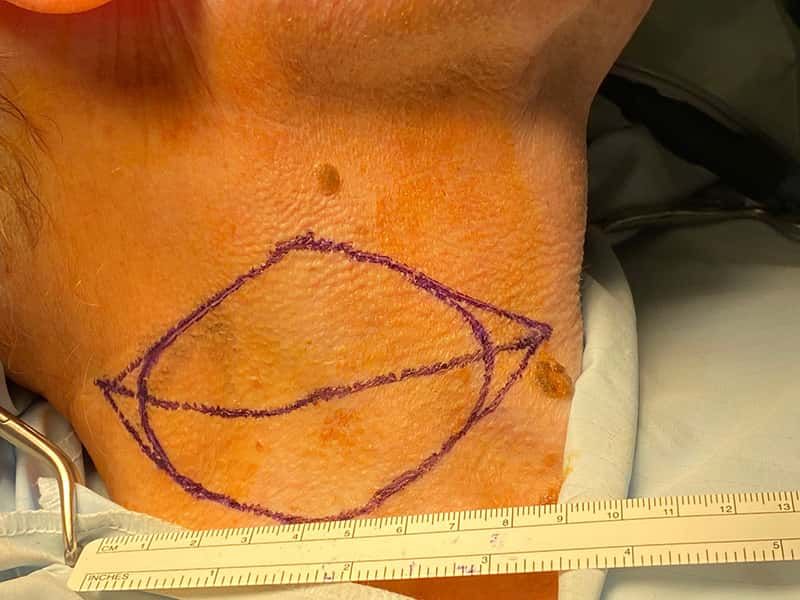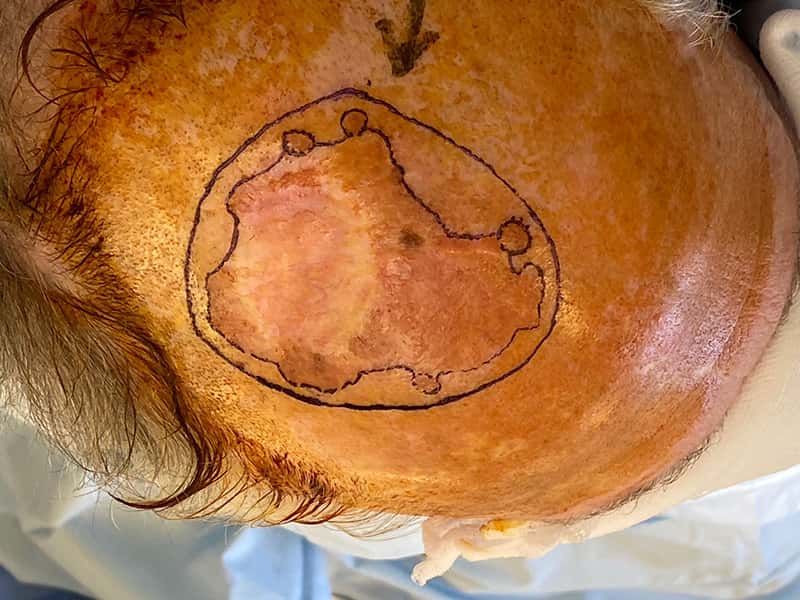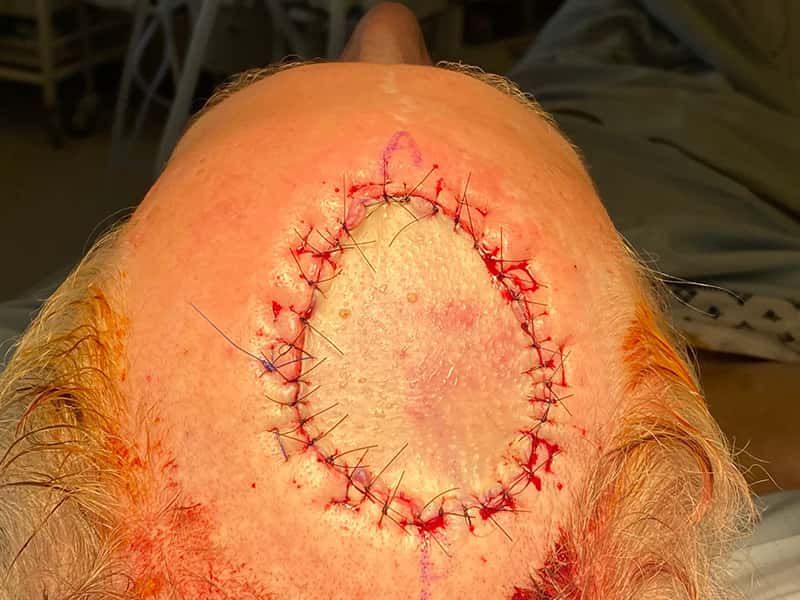Skin Cancer Treatment
The incidence of skin cancer is increasing worldwide, and is primarily related to sun exposure over many years. As people are now living longer, and the immune system declines steadily with age, we are seeing greater numbers of skin cancers appearing in the elderly population and often within each individual.
There are two main groups of skin cancer:
- Cutaneous Melanomas
- Non-Melanoma Skin Cancer: Basal Cell Carcinomas (BCCs) and Squamous Cell Carcinomas (SCCs)
Melanomas
These are far less common than either BCCs or SCCs, but when they do arise in the skin, they are more serious. They often arise from new skin but can develop from pre-existing moles (Naevi). They usually present as enlarging moles with an irregular outline, can often become darker with time and may have associated itching, redness or even bleeding.
If you are concerned about a lesion/mole on your skin, Mr Duncan will examine the area of concern with a dermascope and possibly arrange for you to have an excisional biopsy of the mole. This is carried out under local anaesthetic and doesn’t take very long to do. You will have several stitches to close the small wound and then be followed up in one week for removal of these stitches. Your mole is then sent to the lab for testing and the results are processed within 2 weeks. If the report confirms a melanoma, then your case will be discussed at the MDT and you will be informed of your treatment options very shortly afterwards.
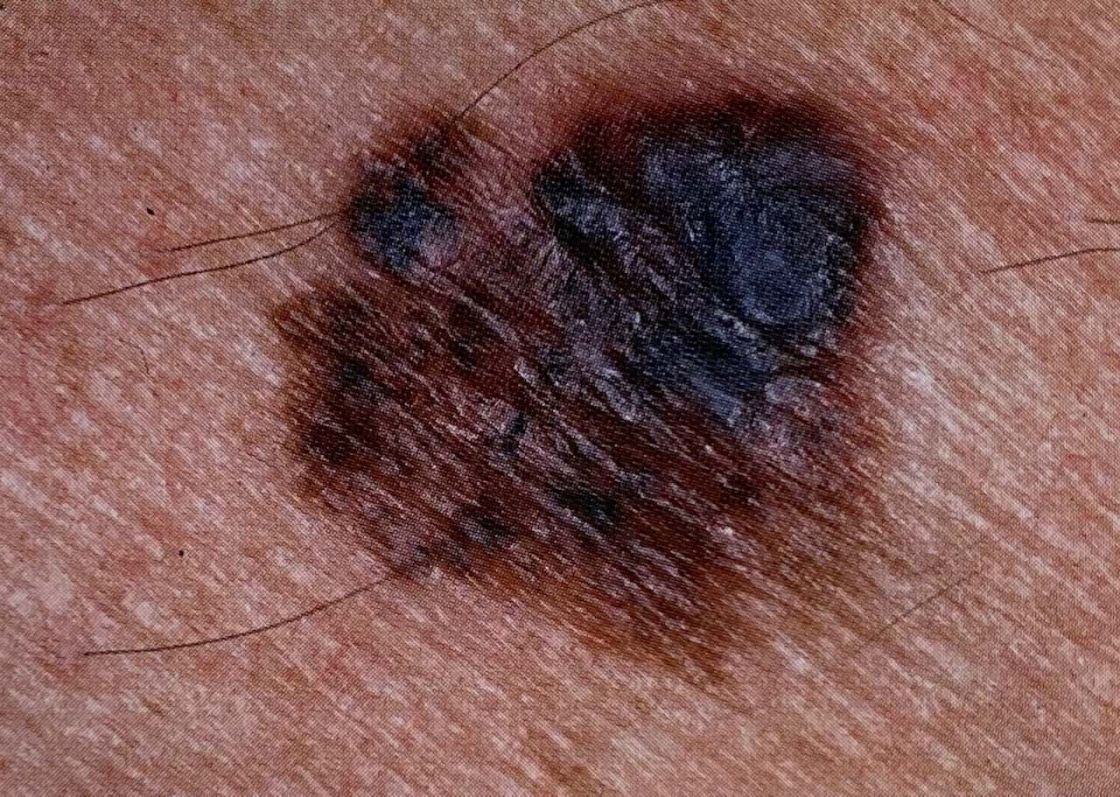
Basal Cell Carcinomas
Basal Cell Cancers are by far the most common skin cancers (80% of skin tumours and 80% on the Head & Neck). Approximately 80000 new cases are diagnosed every year in the UK alone. They are slow growing masses which very rarely spread to other parts of the body, thus are not considered life-threatening. Treatment is mainly surgery and occasionally the resulting defect needs to be reconstructed with either a graft or a flap. Mr Duncan will discuss these options with you at the initial consultation appointment.
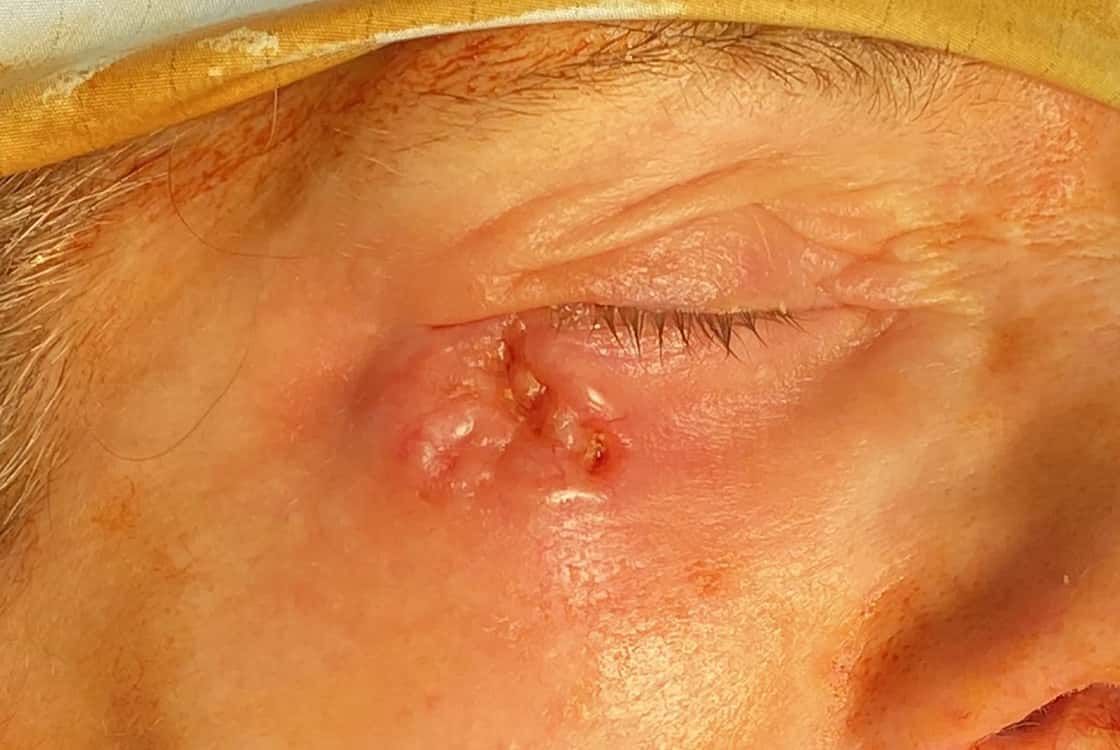
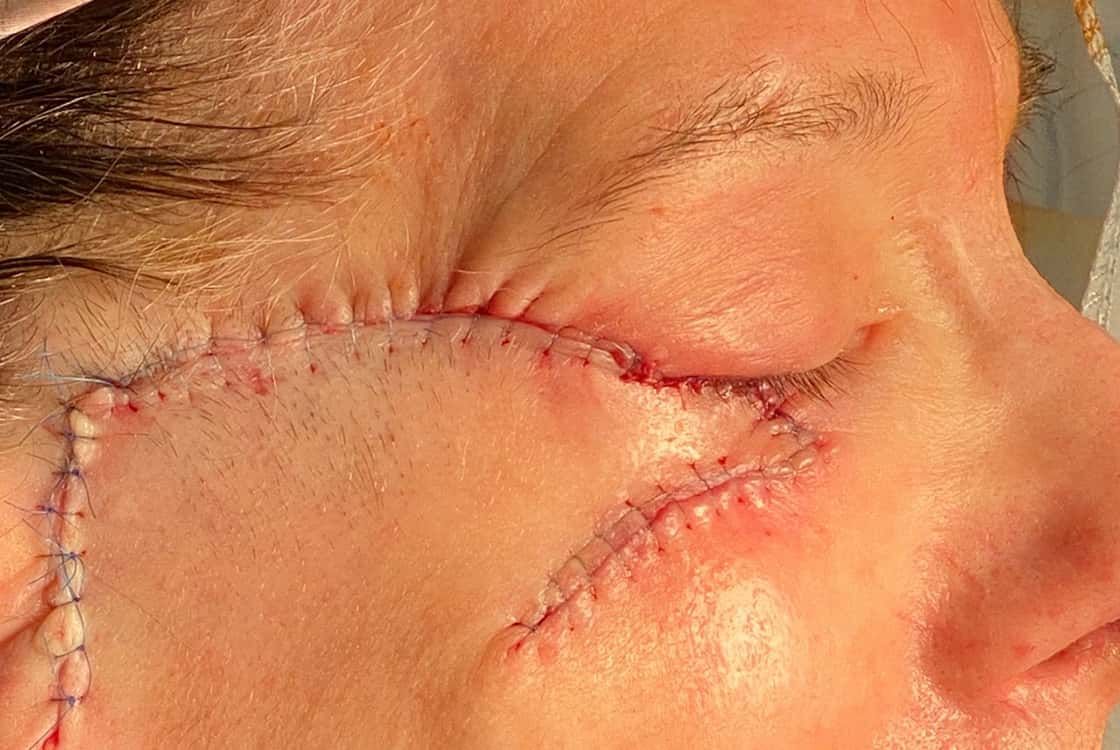
Squamous Cell Carcinomas
These skin cancers are much less common than BCCs (approx. 10-15% of skin cancers) but they can spread (metastasize) to other areas of the body in around 5% of cases. Surgical excision is the treatment of choice in order to remove them with a wide and deep margin. Again, Mr Duncan will discuss the options available to you in detail.
